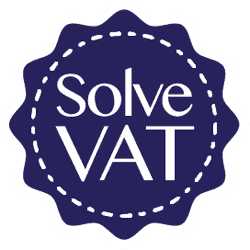What is VAT? Further information.
What is Value Added Tax (VAT) is when a transaction is within the scope of UK VAT, and thus a “taxable supply” if:
- There is a supply of goods or services
- Made in the UK
- By a taxable person, that is to say a business registered for VAT in the UK
- In the course or furtherance of business for a consideration.


“Really impressive stuff” ... a repayment of VAT of over £430,000
What is VAT – supply
A “supply” when considering what is VAT includes all forms of supply, but not anything done otherwise than for a consideration. Anything which is not a supply of goods but is done for a consideration (including, if so done, the granting, assignment or surrender of any right) is a supply of services.
VAT Registration in the UK
Understanding what is VAT begins with VAT registration.
VAT is charged on most supplies of goods and services made in the UK. If your company’s, (or individual or partnership as the case may be) taxable turnover from 1 April 2017, was greater than £85,000 in any rolling twelve month period the law requires you to register for Value Added Tax (VAT) with HM Revenue & Customs (HMRC). From 1 April 2024 the taxable turnover limit is £90,000. It is important to VAT register your business on time as failure to do so could lead to a VAT penalty.
Income subject to the VAT zero rate, such as the export of goods from the UK, the sale of books, etc as well as standard rate income, currently 20%, and reduced rate income, currently 5%, are taken into account when considering the taxable turnover limit. Most businesses can register for VAT online here
What is VAT – Outputs and Output Tax
VAT registered businesses charge VAT on their sales. This is known as Output Tax and the value of sales is referred to as outputs. A VAT registered business is required to raise a VAT invoice for supplies of goods and services made to another business. The information required to be included on a VAT invoice is set down in the VAT regulations.
The rates of VAT are 20% for standard rated supplies, 5% for reduced rate supplies, and 0% for zero rated supplies.
What is VAT – Inputs and Input Tax
VAT is charged on most goods and services purchased by a business from a VAT registered business. The VAT on business purchases is known as Input Tax and the value of business purchases is referred to as inputs. To be able to recover VAT charged as Input Tax it is important that the business keeps within its records a copy of the VAT invoice for the purchase of the relevant goods or services. Any imported goods are likely to incur a VAT charge and a copy of the relevant import documentation should be kept to allow the recovery of any relavent VAT as Input Tax.
The VAT collected from the customer by a business on behalf of HMRC is known as Output Tax and must be regularly paid over to them. The input tax incurred on the goods and services purchased in relation to a taxable supply can be deducted from the amount of output tax owed.
Certain supplies are not taxable supplies and are exempt of VAT and Input tax attributable to such supplies may not be recoverable. Examples of exempt supplies include many financial services and the rental of dwellings.
Input tax incurred on some items can never be reclaimed, such as that in respect of third party UK business entertainment and for most business cars.
HMRC’s guidance on record keeping and VAT invoices can be found at https://www.gov.uk/guidance/record-keeping-for-vat-notice-70021
What is VAT – VAT returns
Once VAT registered for VAT a business is required to submit VAT returns to HMRC on a regular basis, usually monthly or quarterly. VAT returns are usually submited digitally and should include, amongst other information, the value of the Output Tax, Outputs, Input Tax and Inputs. The VAT due to HMRC is calculated by subtracting the value of the recoverable Input Tax from the value of the Output Tax. VAT returns need to be submitted on time and paid on time to avoid VAT fines.
Sending a VAT return information https://www.gov.uk/submit-vat-return
VAT Accountants
Our VAT Accountants at Solve VAT understand what VAT is and can help provide further information on what is VAT. Call 0161 883 2120 for more information on what is VAT, how to obtain VAT penalty advice or find more information about a VAT fine and speak to one of our VAT consultants
HM Revenue and Customs (HMRC)
HMRC are the UK tax authroity responsible for VAT. For further guidance and general enquiries with regard to what is VAT can be made to HMRC at https://www.gov.uk/government/organisations/hm-revenue-customs/contact/vat-enquiries

